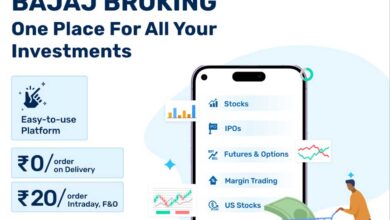
How can someone who has no money establish an online business from home? Can this even be done?
Yes is the quick response. Several prosperous web enterprises were founded with minimal capital and now bring in thousands of dollars annually.
You don’t need prior experience running a business to launch an online business. Managing an online business is different from running a physical store.
So, in this comprehensive guide, I will provide you with all the information you need to launch a successful online business from scratch and in the comfort of your own home.
1. Select a niche
It’s best to stick to a narrow specialty when starting an online business. You can’t anticipate being able to sell everything and make a fortune.
Many online businesses don’t focus on being niche-specific and instead sell hundreds of goods over dozens of categories. The best course of action for operating a successful internet business until that time is to concentrate on your specialization.
Finding other successful online companies with a presence in the sector you want to enter is the first significant step. Consider a niche that isn’t extremely competitive when starting an online business.
Additionally, you must ensure that you have healthy competition since the lack of it typically means no market for your good or service. Skip anything that is dominated by big brands, more importantly.
The top 5 categories of online companies are listed below for your consideration:
- Social media-based businesses. There is also a chance to create a social media-based online business if you have a sizable social media following (for example, on Instagram, Facebook, YouTube, Twitch, etc.). Several methods to monetize your social media following include commercial collaborations, subscription groups, and premium content.
- Freelancing or consulting. Building a freelancing or consulting firm—and then marketing that business and obtaining new leads online—might be the right business strategy if you have a talent in demand.
- Affiliate marketing. Have no items of your own to sell? Not to worry! You may sell other people’s items through affiliate marketing, and you’ll be paid a commission for each sale you make.
- Digital products. You may sell a variety of items online outside only physical goods. Online sales of digital goods, such as books, courses, or design templates, may be quite profitable.
- Selling tangible goods online is called e-commerce. Building an e-commerce store might be a terrific business concept if you have goods to offer.
It’s much simpler to develop a strategy to launch that firm if you’re clear on the sort of enterprise you want to launch.
Read Also: Top 04 Affiliate Networks to Maximize Your Online Earnings
2. Determine whether your new company idea is viable
Even if it’s simpler to launch an online business, there are still expenses. The next stage for your online business is determining whether your idea is feasible, just like with a physically based firm.
Even the most brilliant company idea may fail if there is no market for your product or service. Even if you’ve found a solution to a widespread issue, if the issue turns out to be one that your audience doesn’t care enough about to invest time or money resolving, you’re just wasting your money.
3. Evaluate the Competitors
Analyzing your competitors is important for anybody learning how to launch an online business.
Analyzing your rivals enables you to remain abreast of industry developments, spot winning strategies and emerging trends, and foresee market upheavals. It also aids in defining your brand’s positioning, message, and overarching business plan.
So how exactly do you go about doing competitive analysis? Here are a few pieces of advice:
- Purchase one of their goods
- Abandon a product from their shopping cart
- Subscribe to their newsletter
- Join their social media networks
As you go through this process, take notes on each step and document your results. When you need it, you want to be able to discover pertinent information.
You may learn what strategies your rivals are using to increase sales by examining their customer experience and how they use content to engage their audience.
4. Determine Your Target Market
The next step is to identify your target market. Who are you going to serve, in other words?
This action is crucially important.
So, consider your interests and hobbies while determining a target audience.
- Is there anything I have extensive knowledge of?
- What do I mostly contemplate, discuss, and read about?
5. Choose a business name
A crucial phase of a business startup is naming your business. Your selected name must be accessible for registration as a business name in your state and online since your company will operate mostly online.
Consider variations of the name if your preferred choice isn’t already taken as a domain name or social media username. Keep in mind that many domain name extensions are available in addition to the standard “.com.” Additionally, ensure that none of the registered trademarks conflict with your name or domain name.
Check out the Best Delaware Registered Agent.
6. Build a website
It’s finally time to create a website. A well-designed website aids in forming a positive first impression of your company and enables visitors to discover more about your products and services. To discover a decent WordPress theme, you don’t need to be a graphic designer.
If you want a fully developed eCommerce site, don’t forget to add all the important details about your company, such as the contact, legal, and About Us pages.
See Also: How to Earn Money with YouTube
7. Make it Legal
You must take a few measures to ensure that your firm is legal. Online companies and brick-and-mortar businesses are subject to the same laws in general, although there are a few small exceptions.
- Study the laws for online businesses
Online business law is the key distinction between conducting business online and offline. These laws cover various privacy and intellectual property rules and the disclosure of your customers’ personal information. Before you launch your online business, review the nuances of online business legislation, which the SBA covers in detail.
- Register your business
Choose how you want to build up the legal framework for your business. Although many companies choose to set up an LLC, do your homework to determine which is best for you. Naturally, there will be differences in the criteria for each state. For further information on compliance at the state level, go to the website of your local secretary of state office.
Check out the Best Florida Registered Agent.
- Discover the tax requirements for operating an online business
For online business owners, you can qualify for some tax deductions. You’ll also need to pay income tax, so it could be smart to speak with a lawyer before starting your online business to ensure you’re fully protected moving ahead.
Conclusion
Scaling an online business is far bigger and more difficult than starting one, which is not simple. After opening an online store, it becomes problematic for many online business owners. Sales will undoubtedly increase if your brand begins to expand. However, don’t declare it a success just yet.
Avoid having a strong demand for your goods and little or no ability to supply them. You must be prepared to extend your operations to satisfy the needs of your consumers that come with an expanding brand presence.







